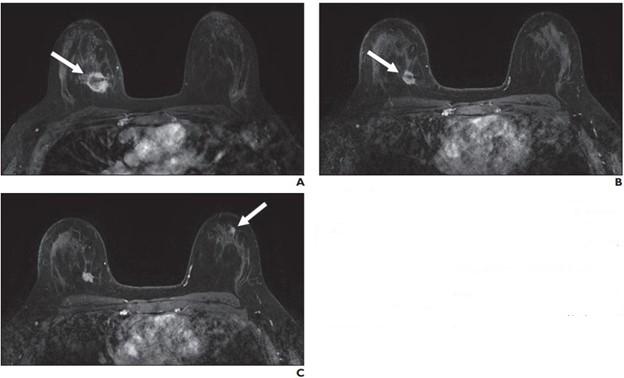Specific Gene Changes Predispose Women to Cancer in Both Breasts
 Researches from the Mayo Clinic Comprehensive Cancer Center have discovered why women with cancer in one breast may be at higher risk of developing cancer in the opposite breast—they are carriers of specific genetic changes that predispose them to develop breast cancer. The findings, published in the Journal of Clinical Oncology, will help personalize approaches to breast cancer screening and risk factors, study authors say.
Researches from the Mayo Clinic Comprehensive Cancer Center have discovered why women with cancer in one breast may be at higher risk of developing cancer in the opposite breast—they are carriers of specific genetic changes that predispose them to develop breast cancer. The findings, published in the Journal of Clinical Oncology, will help personalize approaches to breast cancer screening and risk factors, study authors say.
Using data from 15,104 prospectively followed women in the CAnceR Risk Estimates Related to Susceptibility (CARRIERS) consortium, the researchers found that patients who carry a germline BRCA1, BRCA2 or CHEK2 mutation have at least a twofold increased risk of developing cancer in both breasts, known as contralateral breast cancer.
In contrast, patients who carry germline ATM mutations did not have a significantly elevated risk of contralateral breast cancer. Among PALB2 carriers, the risk of contralateral breast cancer was significantly elevated only among those with estrogen receptor-negative disease.
"These are the first population-based numbers out there for these three genes beyond BRCA1/2," says Fergus Couch, PhD, breast cancer researcher at Mayo Clinic Comprehensive Cancer Center, Zbigniew and Anna M Scheller Professor of Medical Research and the principal investigator of the CARRIERS Study. "It is also one of the largest studies to provide estimates of contralateral breast cancer risk by age at diagnosis, menopausal status and race/ethnicity in germline mutation carriers."
Most patients with breast cancer who carry germline mutations assume they are at high risk of developing cancer in the opposite breast, says co-author Siddhartha Yadav, MD, medical oncologist, Mayo Clinic Comprehensive Cancer Center. While this is true for BRCA1/2 mutation carriers with breast cancer, the risk of contralateral breast cancer in carriers of germline mutation in ATM, CHEK2 or PALB2 had not been previously established. Even for BRCA1/2 carriers, a comprehensive assessment of contralateral breast cancer risk based on age, estrogen receptor status, menopausal status and the effect of treatment for initial breast cancer had not been undertaken.
"The findings reveal important information that will aid in a personalized assessment of contralateral breast cancer risk in our patients who are germline mutation carriers," Dr Yadav says. "Having this level of detail will help guide decisions between patients and their care teams on appropriate screening and steps to reduce the risk for contralateral breast cancer based on more precise and individualized risk estimates."
Premenopausal women who carry germline mutations generally have a higher risk of contralateral breast cancer compared with women who are post-menopausal at breast cancer diagnosis, researchers found. Among women with germline mutations in breast cancer predisposition genes, black women and non-Hispanic white women have similar elevated risk for contralateral breast cancer, the study found, suggesting that risk management strategies should be similar.
"Many women will undergo bilateral mastectomy to reduce the possibility of a second breast cancer," Dr Couch says. "Now we have data to work from when making the decision to remove the second breast, pursue aggressive surveillance or take preventive medication."